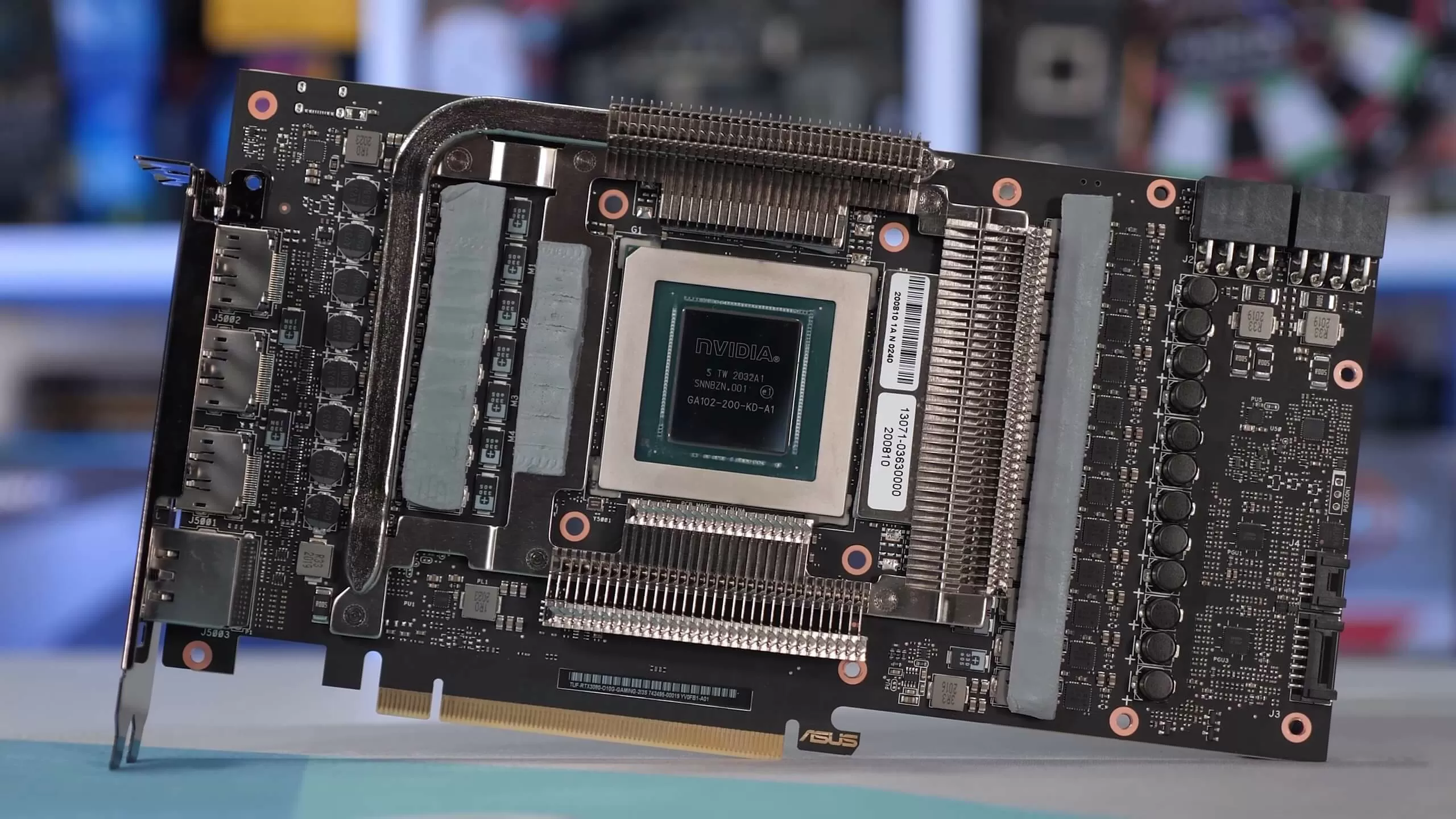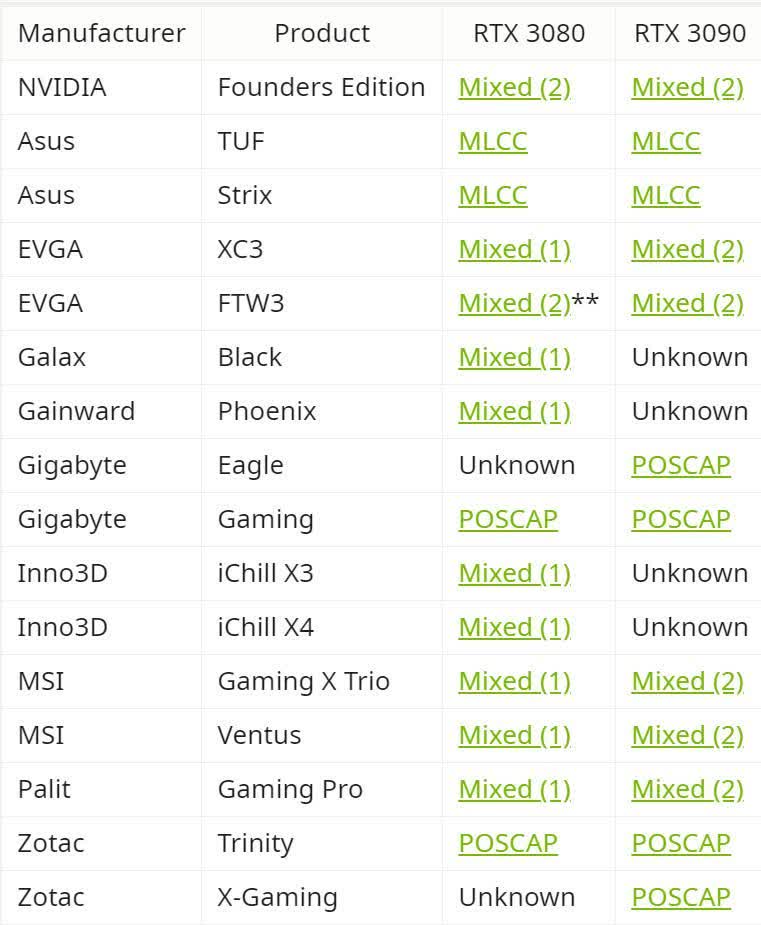Facepalm: The RTX 30-series hasn't had the smoothest of launches, from limited stock to bots snapping up what few cards were out there, but at least they don't have any hardware issues---do they? In the case of factory-overclocked aftermarket products, you might find your RTX 3080 and 3090 suffering from crashes and stability problems.
Follow up: Get your driver fix: graphics card makers respond to RTX 30-series capacitor controversy
The issue appears related to the type of capacitors found on the rear of the PCB underneath the GPU. As explained by Igor's Lab, AIB partners are supposed to use two types of capacitors for filtering voltages: large-area POSCAPs (Conductive Polymer Tantalum Solid Capacitors) or the smaller and cheaper MLCCs (Multilayer Ceramic Chip Capacitor). As per Nvidia's specifications, manufacturers' designs can use all-POSCAP, all-MLCC, or a combination of both.
MLCCs are smaller, cheaper, and have high current, voltage, and temperature ratings. They also operate better at higher frequencies. But they're prone to cracking and piezo effects and have poor temperature characteristics. The more expensive POSCAPs, meanwhile, have lower voltage ratings and aren't as good at high frequencies, but are not prone to cracking or the piezo effect, and operate better at high temperatures.
The problems are occurring when certain cards that feature all-POSCAP designs reach/exceed 2.0 GHz. Nvidia's Founders Edition 3080/3090s, which haven't seen many reports of issues, don't feature as many POSCAPs. While unconfirmed, there are claims that manually downclocking the impacted cards by around 100 MHz can prevent the crashes.
EVGA has confirmed that the problems are related to the capacitors. "During our mass production QC testing we discovered a full 6 POSCAPs solution cannot pass the real world applications testing. It took almost a week of R&D effort to find the cause and reduce the POSCAPs to 4 and add 20 MLCC caps prior to shipping production boards, this is why the EVGA GeForce RTX 3080 FTW3 series was delayed at launch. There were no 6 POSCAP production EVGA GeForce RTX 3080 FTW3 boards shipped," writes the company.
"But, due to the time crunch, some of the reviewers were sent a pre-production version with 6 POSCAP's, we are working with those reviewers directly to replace their boards with production versions. EVGA GeForce RTX 3080 XC3 series with 5 POSCAPs + 10 MLCC solution is matched with the XC3 spec without issues."
Interestingly, Buildzoid claims that none of the RTX 30-series use POSCAPs. These capacitors are called SP-Caps.
Nvidia subreddit monitor Nestledrink has compiled a list of manufacturers and cards, noting which use MLCCs, POSCAPs, or a mixture of both. It's important to remember, though, that just because a card uses all POSCAPs doesn't automatically mean it will have issues.


